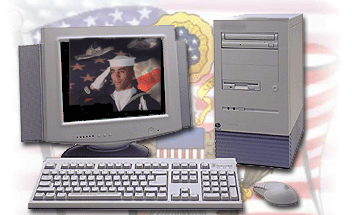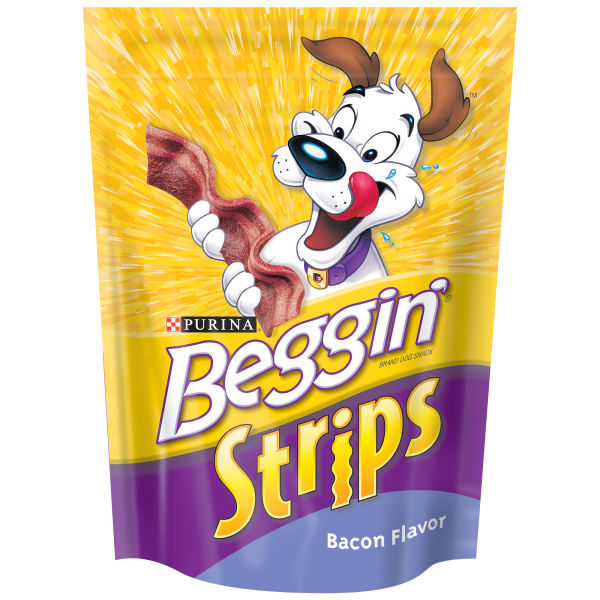|
Our Troops Rock! Thank you for all you do!
|
| |
| For the freedom you enjoyed yesterday... Thank the Veterans who served in The United States Armed Forces. |
| |
| Looking forward to tomorrow's freedom? Support The United States Armed Forces Today! |
| |
| |
|
| ~ Hall of Heroes ~ John Ripley Info from here. |
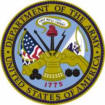 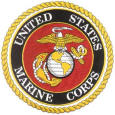  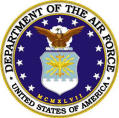  |
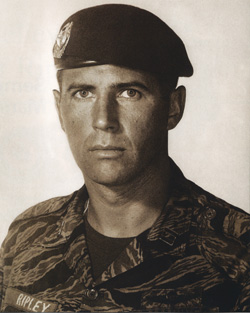 John Walter Ripley (June 29, 1939–October 28, 2008) was a United States Marine Corps officer who received the Navy Cross for his actions in combat during the Vietnam War. On Easter morning 1972, Captain Ripley, repeatedly exposed himself to intense enemy fire over a three hour period as he prepared to blow up an essential bridge in Dong Ha. His actions significantly hampered the North Vietnamese Army's advance into South Vietnam. The story of "Ripley at the Bridge" is legendary in the Marine Corps and is captured in a diorama at the United States Naval Academy. His story is required reading for academy students. |
|
John Walter Ripley was born on June 29, 1939 in Keystone, West Virginia and his family lived there until he was five years old. They then moved to Portsmouth Ohio, where they remained for some years before finally settling in Radford, Virginia. John Ripley enlisted into the Marine Corps in 1957 at 17 years of age. A year later, he was appointed to the U.S. Naval Academy by the Secretary of the Navy. He graduated in 1962 with a Bachelor of Science degree in electrical engineering, and received his commission as a second lieutenant. After completing the Basic School, he joined the Marine Detachment on the USS Independence (CV-62). After his sea duty, he joined 2nd Battalion, 2nd Marines. In May 1965, Ripley was transferred to 2nd Force Reconnaissance Company, and after training, he deployed to Vietnam with his platoon. In October 1966, Ripley joined 3rd Battalion, 3rd Marines in South Vietnam. He served as Company Commander of Lima Company, known as Ripley's Raiders was wounded in action, then returned to active duty and completed his combat tour. During his two years of Vietnam service, he participated in 26 major operations. In addition to numerous decorations for extensive combat experience at the rifle company and battalion levels, Ripley was awarded the Navy Cross for extraordinary heroism in destroying the Dong Ha bridge during the April 1972 North Vietnamese 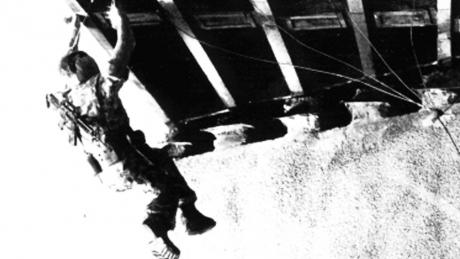 Easter Offensive (also known as the Nguyen Hue Offensive). That action is memorialized at the Naval Academy with a large diorama titled "Ripley at the Bridge." Easter Offensive (also known as the Nguyen Hue Offensive). That action is memorialized at the Naval Academy with a large diorama titled "Ripley at the Bridge." While under intense unrelenting enemy fire, Ripley dangled for three hours under the bridge in order to attach 500 pounds of explosives to the span, ultimately destroying it. His action, conducted under enemy fire while going back and forth for materials, definitively thwarted an onslaught by 20,000 enemy troops and was the subject of a book, The Bridge at Dong Ha, by Colonel John Grider Miller. He attributes his success to the help of God and his mother. When his energy was about to give out he began a rhythmic chant, "Jesus, Mary, Get me there". His body taxed to its extreme limits, his action is considered one of the greatest examples of concentration under fire in the annals of U.S. military history. It also delayed NVA forces from taking Saigon for another three years. Following his tours in Vietnam, Ripley served with Marine Force Reconnaissance, was an exchange officer with the British Royal Marines and was a Commanding Officer of 1st Battalion, 2nd Marines and the 2nd Marine Regiment. His final tours in the Marine Corps were in charge of the NROTC detachments at Oregon State University and the Virginia Military Institute, and as the senior Marine at the United States Naval Academy teaching English and history. He earned the "Quad Body" distinction for making it through four of the toughest military training programs in the world: the Army Rangers, Marine reconnaissance, Army Airborne and Britain's Royal Marines, according to Miller's book. He was also the only Marine officer to be inducted in the U.S. Army Ranger Hall of Fame. Ripley retired from the Marine Corps in 1992 after 35 years of active duty service. He received more than five awards for his acts of bravery in Vietnam. 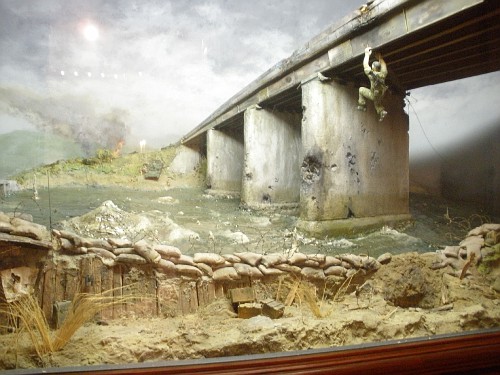 |
| After his retirement from active duty in 1992, Ripley became president and chancellor of Southern Seminary College for Women (now Southern Virginia University) in Buena Vista, Virginia. He was selected in 1999 by the Marine Corps Commandant as the director of the History and Museums Division. As a result of combat action, Colonel Ripley contracted a disease that in the summer of 2002 required a liver transplant. Nearing death, with little time left and already having received Last Rites twice, a replacement liver was located. The Commandant of the Marine Corps, who called Col. Ripley a living symbol of pride, sent a section of CH-46s helicopters from the Marine One presidential squadron to Philadelphia to retrieve the liver. After further coordination with the Washington D.C. Police to obtain a landing zone in the city, the liver was delivered in time for a successful transplant. In June 1992 Col. Ripley testified against women in the military before a presidential commission. He based his arguments on a defense of “femininity, motherhood, and what we have come to appreciate in Western culture as the graceful conduct of women.” In the following year he spoke against homosexuals in the military during the House Armed Services Committee hearings that preceded the implementation of President Clinton’s "Don’t ask, don’t tell" policy. In October 2006, John Ripley returned to the site of the Dong Ha Bridge to film a documentary of his action. The documentary was hosted by Oliver North, and was shown on November 12, 2006 on Fox News. |
| In addition to the Navy Cross, his personal decorations include the Silver Star, two Legions of Merit, two Bronze Star Medals with 'V' for Valor, the Purple Heart, the Defense Meritorious Service Medal, the Meritorious Service Medal, the Navy Commendation Medal, the Combat Action Ribbon, the South Vietnamese Army Distinguished Service Order, 2nd Class, and the South Vietnamese Cross of Gallantry with Gold Star. In 2002, he also became the very first Marine officer to receive the “Distinguished Graduate Award”, the highest and most prestigious award given by the United States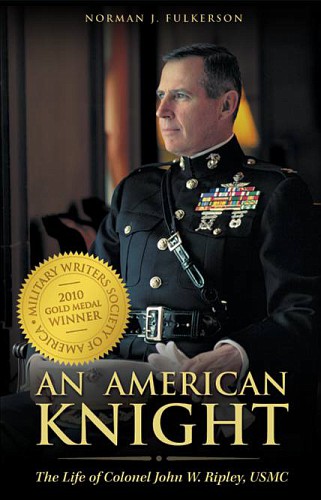 Naval Academy. Also, in May 2004, Marines of the 22nd Marine Expeditionary Unit named a Forward Operating Base after him (FOB Ripley) in south-central Afghanistan. Naval Academy. Also, in May 2004, Marines of the 22nd Marine Expeditionary Unit named a Forward Operating Base after him (FOB Ripley) in south-central Afghanistan. In July 2006, the Naval Academy Preparatory School in Newport, Rhode Island dedicated its new dormitory as "Ripley Hall", honoring their former graduate. On June 11, 2008, Ripley became the first Marine to be inducted into the U.S. Army Ranger Hall of Fame — honored for the assault on the Dong Ha Bridge, on Easter morning 1972. On Tuesday November 11, 2008, Veteran's Day, Ripley's hometown of Radford, VA held a ceremony in memory of him. It had been originally intended to be in honor of him, but he died a couple weeks before the ceremony took place. His son was presented with a key to the city and a plaque declaring November 11, 2008, John W Ripley day in Radford, VA. Ripley died suddenly on October 28, 2008 at his home in Annapolis, Maryland of undetermined causes at age 69. He was survived by his son, Stephen, by his wife of 44 years, the former Moline Blaylock; a sister, Susan Goodykoontz; two other sons, Thomas and John; a daughter, Mary Ripley; and eight grandchildren. Moline Blaylock Ripley died on September 12, 2009, from complications due to Alzheimers disease, at the age of 68. When he passed way, his son Thomas related at his funeral that Commandant James L. Jones visited him in his hospital bed accompanied by Color Sergeant of the Marine Corps Sgt Jewel and the Battle Colors, He told Ripley, "The Colors don’t leave the room until you do." He was buried with full military honors on November 7 at the United States Naval Academy. On October 28, 2009, the first biography about Col. Ripley was published. It was written by Norman Fulkerson and is titled An American Knight, The Life of Col. John W. Ripley |
| The honor of delivering Col. Ripley's eulogy at his funeral was given to his son, Thomas. The following is the text of the address, as found here: Colonel John Walter Ripley, U.S. Marine Corps
A Eulogy by his son, Thomas Ripley
I would like to start my remarks with one of our father's favorite prayers -
God, Please do not let me screw this up. Amen.
As I look out in this chamber I see some of our nation's greatest warriors
and patriots. Our father addressed each of you as his friend, family, and
fellow Marine. All equal terms in his book. I want to thank all of you for
coming to honor our father. Our family is deeply humbled by the outpouring
of support and your condolences. Our father taught me that leadership is "a
contact sport"; you have to personally engage your Marines. This turnout is
a testament to John Ripley's style of leadership and for that matter his
style of friendship.
My father is part of two great institutions: the U.S. Marine Corps, and the
U.S. Naval Academy. I would like to take this opportunity to thank the
Commandant, Gen. Conway, and the Superintendent of the Naval Academy, Vice
Adm. Fowler.
When I was a newly minted 2nd Lt. one of my Basic School instructors told me
that my father is worth 1000 men. He could see from my expression that I did
not understand - a look that I mastered as a 2nd Lt. He responded that if
there was a fight and your father was going, then 1000 men would immediately
join him. It appears that instructor underestimated John Ripley.
Family was always the most important thing in John Ripley's life. My
siblings and I are living proof of this. We made plenty of mistakes as
children, and if it were not for the bond of family none of us would have
seen 18. Our father gave everything to us. He never had a nice car, took
individual vacations, or had lavish things - all of that went to our
education and betterment. He was a selfless parent. Despite all of his
achievements we always knew that we were his greatest accomplishment.
Our father loved history. A lifelong student, and son of Virginia, he often
closed his messages, notes, and speeches with a quote from Stonewall
Jackson, Jeb Stuart, or Robert E. Lee. Every road trip as a child included a
sudden stop to read a battlefield marker, or pause for a quick history
lesson. This knowledge gave him a sense of perspective. He believed that he
was located at Dong Ha for a reason, and that he had the tools and the
training to blow that bridge. He passed on this perspective at every
opportunity. When he would speak in public or private it was always built on
stories and lessons of the past. How many of you have walked a battlefield,
toured a museum, a monument, or cemetery with John Ripley - the emotion was
overwhelming and was only matched by his passion for the topic. History
inspired our father, and his passion was focused on the courageous acts of
Marines carrying out their orders. The tactics and details of history were
simply a baseline to teach us about the more important things. Our father's
knowledge of the Corporal, the PFC, and those overlooked acts of heroism was
unmatched. It tells a great deal about John Ripley's character that he spent
the time to uncover these facts, and chose to use them instead of other,
more well-known examples of courage and heroism.
Faith always played a powerful role in our father's decisions. Faith is why
John Ripley was always incredibly optimistic. When the odds were long John
Ripley wanted to be with you, and you wanted the same thing. His parting
words to my brother and I as we matriculated into VMI were "Just remember -
they can't kill you". He took particular pride getting the underdog, the
student athlete with the questionable academics but great leadership
potential, into the Academy. John Ripley loved a good fight, and he was good
at it.
There are so many incredible memories and lessons that I have from our
father. I want to leave you with a few of our favorites.
. Trouser pockets are not for hands.
. Officers with facial hair love to stand weekend duty
. Always take the hard road. You will be tired, but you will be alive.
. There are two seats on the John Ripley train - on it or under it
. When you use the kneeler today, do not rest your bottom on the pew. Kneel
or sit - not both.
. The term Skipper is only to be used for Commanding Officers of Rifle
Companies in Combat, and Ships at Sea.
I want to share with you the concept of "A nickel a run." We never took
normal vacations as children. In our house it was 100% all the time and this
held true for vacations. We would drive all night to the beach and arrive at
2AM. In the middle of the night we did what every normal family would do -
we would go for a swim. When we went to Martha Vineyard for a day trip our
father rented 5 bicycles, and we peddled around the island. My entire family
found out first hand that it's 27 miles around Martha's Vineyard. I was 10
years old. While visiting Yosemite in the early spring we all had to swim
across the Merced River. And when we would go skiing, Dad would buy us all
lift tickets at $20 each. The key was to get as many runs down the hill as
possible so that at the end of the day you were at a "nickel a run." I was
25-years-old when I discovered that that ski resorts serve food, and have
warm lodges.
In John Ripley's house everyone had a job and whining was not allowed. Idle
hands are the devil's playthings. One summer our father found us watching TV
in the basement. He promptly cut the power cord off the TV closest to the
set so that we could not splice the wires. Many of you do not know that my
father is also a dentist - after years of complaining about the fact that I
had to wear braces, I demanded that they be removed. To my surprise, my
father obliged and removed them that day with a pair of pliers.
You all know that our father loved being a U.S. Marine. Over and over in his
notes he says the same thing - To be a Marine is to be blessed. My emblem is
the same as yours and the same as the hundreds of thousands that went before
me - they are watching me perform. I have to uphold the standards. My
father's style of leadership was summed up on a card he gave me when
commissioned.
A Marine Leader must have:
. The Spirit of the Attack - March to the sound of the guns
. Boldness - You are part of the finest fighting force in the world - act
like it.
. A receptiveness for risk taking - Risk comes with the job, and if you are
not comfortable operating with risk then you need to get into a new line of
work.
. Endurance, mental & physical - Mental is far more important than physical
. Decisiveness - Make a decision, Lieutenant!
. A sense of mission, a sense of duty. - Mission first, Marines Always
In recent years the Marine Corps saved our father's life - twice. The first
time our 32nd Commandant, Gen. Jones, provided a helicopter so that our
father could receive a transplant. Time was short, and when John Ripley
needed the Corps they came through in a way only the Corps could. The second
time few people know about. The road to recovery from the transplant was a
long one. Our father was struggling. There was a commotion outside his
hospital room as an Army orderly tried to stop the four Marines from
entering. Moments later the Color Sergeant of the Marine Corps entered with
the Battle Colors of the Marine Corps. The message was simple. ""Sir, the
Commandant [Gen. James L. Jones] says that these colors are not to leave
this room until you do."" Those colors saved his life.
While stationed here in 1985, the Commandant of the Naval Academy, Leslie
Palmer, died suddenly. Our father came to visit his friend prior to
internment. He was shocked when he entered the room to find no honor guard
with Capt. Palmer. As the Senior Marine at the Naval Academy our father
stood at Parade Rest by Capt. Palmer for 10 hours. It was only after our
mother called another Marine to replace him that our father would leave his
friend's side.
While serving as the Director of History for the Marine Corps our father was
contacted by an officer from a regimental staff in Iraq. The regimental CP
was hit by a mortar round and the regimental colors had blood on them and
were burned in several spots. The officers question was what do we do with
these Colors and how do we get new ones. Our father's response was classic
John Ripley - ""Nothing. They are called BATTLE COLORS"".
There is little question that John Ripley was a winner. Most of you do not
know the secret of our father's success. If you have ever attended one of
his change of commands, a promotion, or an awards ceremony, you will know
that at the end he always thanked one person for his achievements - our
mother, Moline. As many of you know our mother is not able to attend today's
funeral service. It is said that behind every successful man is a woman that
expects it. This was never more accurate than in our home. My Mom loved
being married to a Marine, and she loved the Corps. I remember in Camp
Lejeune when our father would come home for dinner she would politely ask
him to go upstairs and change out of his uniform. I always thought this was
odd. I finally figured it out. When passing out orders in the house Moline
did not want to embarrass him. Mom outranked Dad. Our mother, Moline, has
always been the driving force behind John Ripley.
In the future I will tell my son about his grandfather, John Walter Ripley.
I will tell him that John Ripley was everything that is good about being an
American. He gave everything he had to his family, and he loved his wife
above all things. He was driven, and eternally optimistic. John Ripley was a
patriot, and he remains my hero. His one defining trait - above all others -
was that John Walter Ripley is a U.S. Marine. |
| Please remember the Canteen is here to honor, support and entertain our troops and their families. This is a politics-free zone! Thanks for helping us in our mission! |
|
|


![]()

